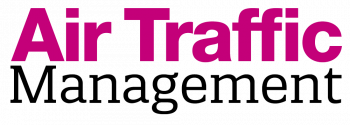ENAIRE held the second meeting of GO-DRON, a forum for drone operators to analyse proposals for improvement and the outlook for remotely-piloted aircraft flights and initiatives for improvement involving the needs of unmanned aviation, for both professionals and recreational users, as these relate to air navigation. In addition, TEDAE and AECA, representing the industry and airlines, were welcomed as the forum's newest members.
At this second meeting, a broad programme of work was agreed upon that includes initiatives related to professional and recreational drone operations, as well as drone operations carried out by law enforcement agencies. The subsequent development of this programme will involve the user associations represented in this group, as well as the Civil Aviation General Directorate, Aena, AESA, the Air Force Staff, the Department of Customs and Special Taxes of the Revenue Agency, the State Secretariat for Security and representatives from industry and commercial aviation.
ENAIRE presented a detailed analysis of the trend in UAS requests in recent years. In the first quarter of 2021, 1,038 drone operations were coordinated, 63% more than in 2020 (1,646 jobs). Proof of this rapid growth was evident in March 2021, which had more operations than the whole of 2018.
We are working to improve and reduce the processing times for these requests in an effort to foster the growth of the drone sector and the work of operators, in their clear vocation as public service providers. 75% of the operations have been processed through ENAIRE Planea, which is available at planea.enaire.es, the platform for managing and requesting aerial works, a resource we expect to grow in the short term.
Attendees at the meeting reviewed the current status of European U-Space regulation, the deployment of ENAIRE's U-Space platform and the U-Space and UAM (Urban Air Mobility) projects the task force is participating in.
U-space is the set of digital services that make it possible for the digital and automated management of a large number of drone operations. It was proposed by the European Commission as Europe's solution for automatically managing UAS and integrating them into European airspace. This will be essential to alleviating the current pressure on UAS requests, which, given the current trend, will undoubtedly increase in the coming months.
The European regulation governing U-Space was approved in February and will enter into force on 26 January 2023. It lays out the rules and procedures for the provision of specific services that allow for secure drone operations and their integration into the aviation system. It will be applicable for specific reserved geographical areas, designated as U-Space airspace by Member States.
The deployment of U-Space will mean integrating new agents into the system, the specific providers of these services, or the U-Space Service Providers (USSP), who will offer their services to drone operators in a competitive market, aided by the Single Common Information Services Provider (CIS-P). To provide this service nationally, we just tendered the supply of a U-Space platform that, along with ENAIRE, as the air navigation service provider, and other providers of aerodrome air traffic services, and drone operators and privileged users, will comprise the U-Space ecosystem.
The development and deployment of ENAIRE's U-Space platform, tendered to provide U-Space services, will allow us to get ready for the automated management of drone operations beyond line of sight in designated "U-space airspace", and specifically, to centralise the "common information services".
In order to test how to integrate drone traffic into our airspace, ENAIRE is currently working in European consortiums that will demonstrate the viability of U-Space alongside the UAM concept. Of note are the CORUS-XUAM, AMU-LED and Uspace4UAM projects, which will conduct various exercises in Spain, namely in Casteldefells in Barcelona, Santiago de Compostela, and Villacarrillo in Jaén, respectively.
These consortiums within the SESAR Joint Undertaking alliance will use applications to test parcel deliveries using drones and flying taxis in cities.
